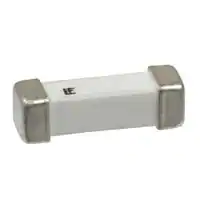Products in the electrical and specialty fuses category are utilized for over-current fault protection. They operate based on current flow over a required maximum, causing, and destroying a conductive element within the device. They can be differentiated from standard fuses by one of many factors, having a non-supplementary classification under the UL28 standard, a certification allowing for use in hazardous and harsh environments. Electrical, Specialty Fuse may also include form factors other than those commonly seen in products utilized for supplementary equipment protection, such as those with the indication function or fusible cable links, and fuss manufactured for particular applications such as protection of multimeters or telecommunication circuits.
What is an Electrical Fuse?
An electrical fuse is a safety device that protects against the overflow of current in an electrical circuit. A vital component of an electrical fuse is a metal wire or strip that usually melts when there is excess current flow. The fuse can help to protect the device by restricting the current flow in such cases.
Working Principle
There are two essential concepts involved in understanding the working principle of electrical fuses:
- Current flows in a loop
- Heating effect of current
Electric current only flows through a conductor when the circuit is fully formed. If there is a break in the loop, the current will not flow. Switches also function in the same way. For example, when you turn on the light switches at your home, the lights turn on because you have completed the circuit that allows the charges to flow from the power source to the lights and power them up.
When this current passes through the conductor, the various electrical components of the circuit, such as the attached devices, will restrict the current flow. The work that goes into overcoming this resistance results in heat. This can be taken as a simple explanation of the heating effect of current.
Applications of Fuse
Typical applications or uses of Electrical, Specialty Fuse include:
- Preventing device failure because of faulty circuit operation
- Preventing overload and blackouts
- Fuses also prevent short circuits
- Effectively preventing damage that is caused because of mismatched loads.





